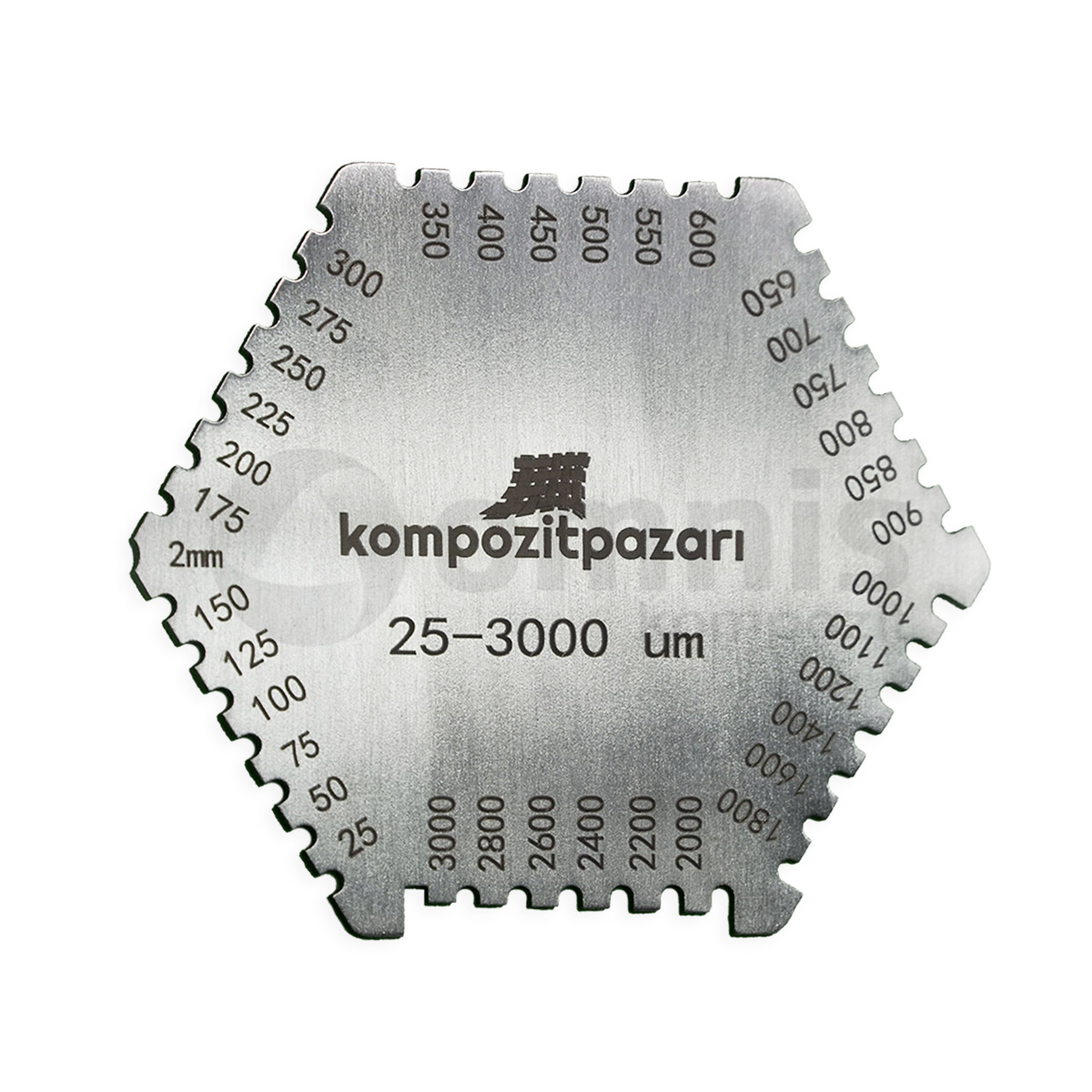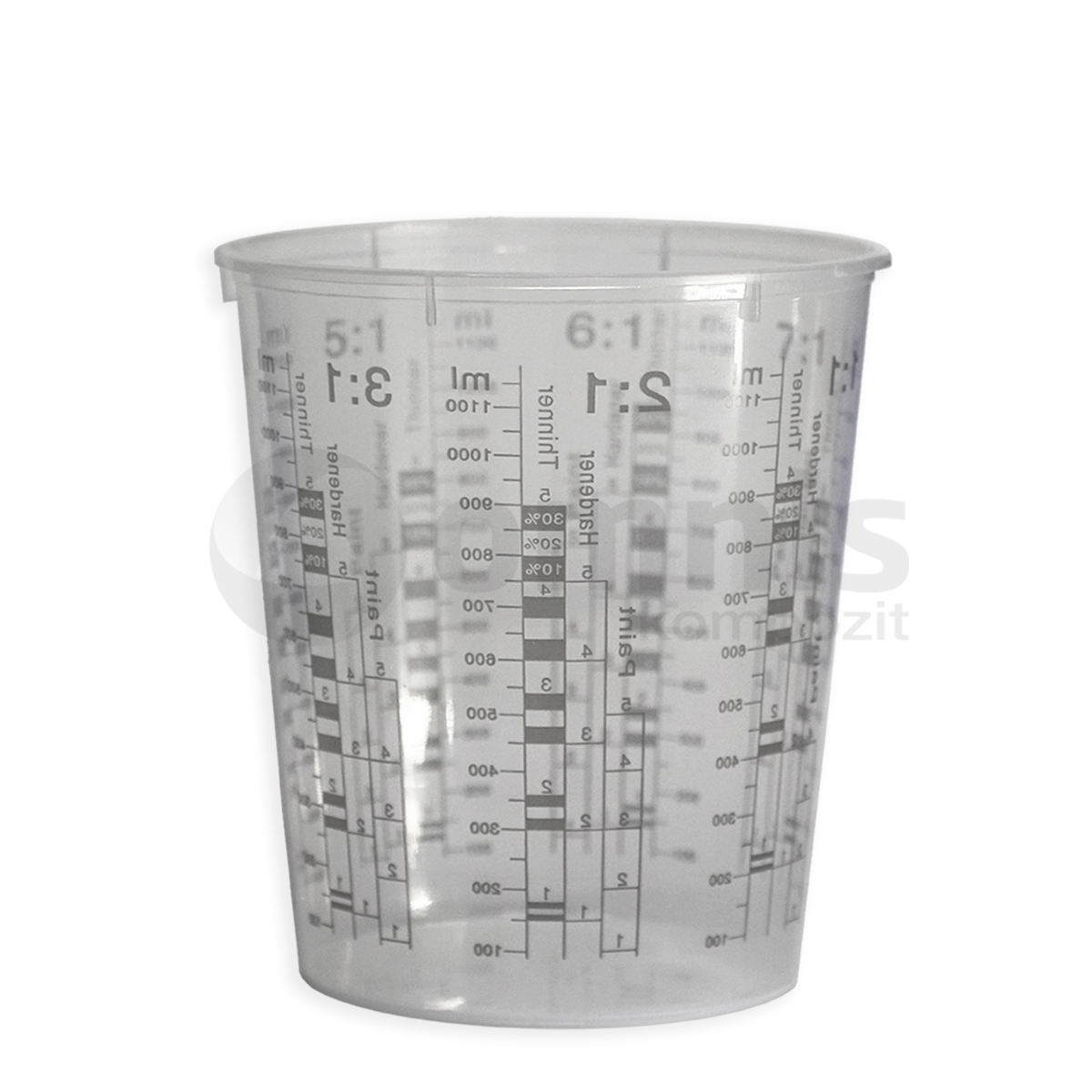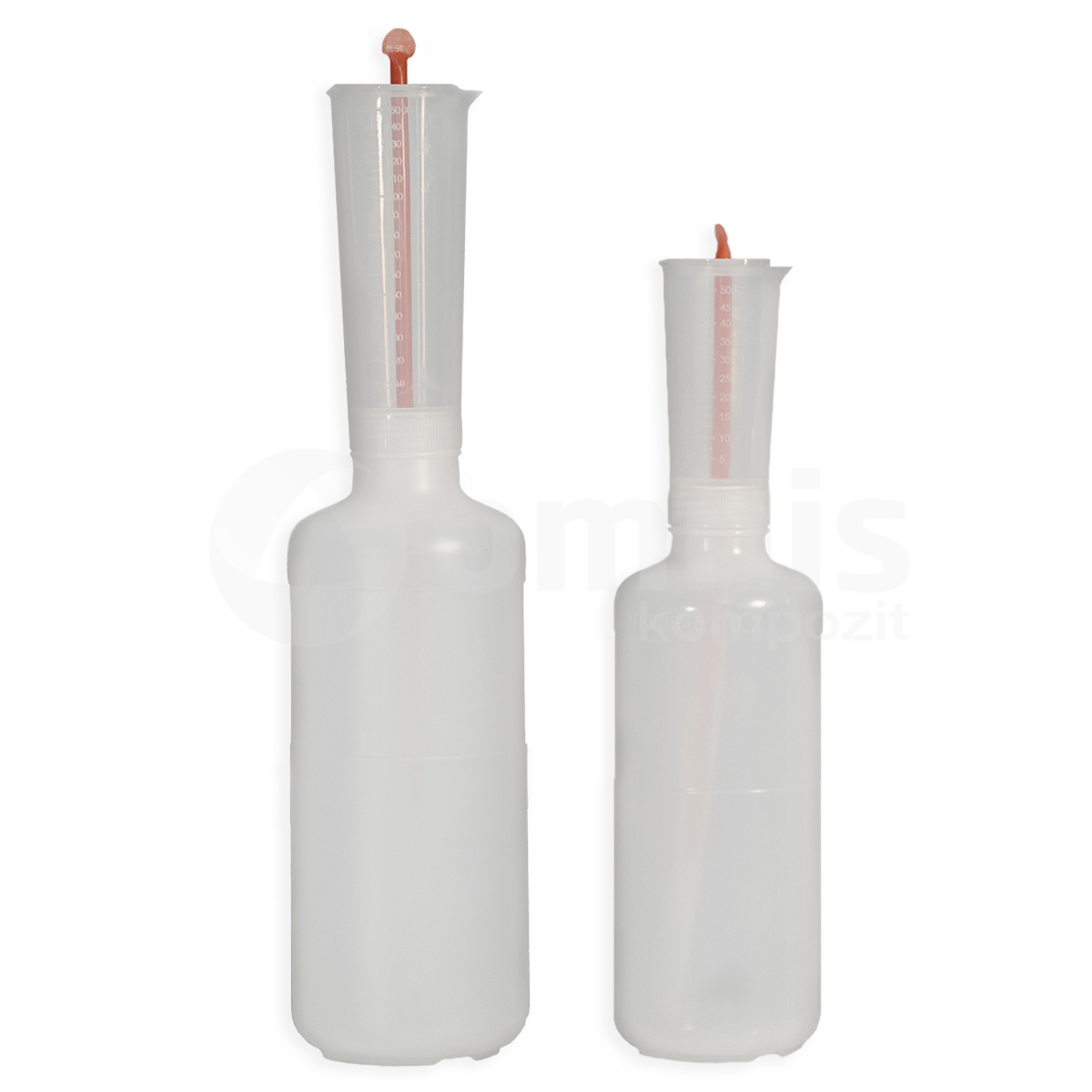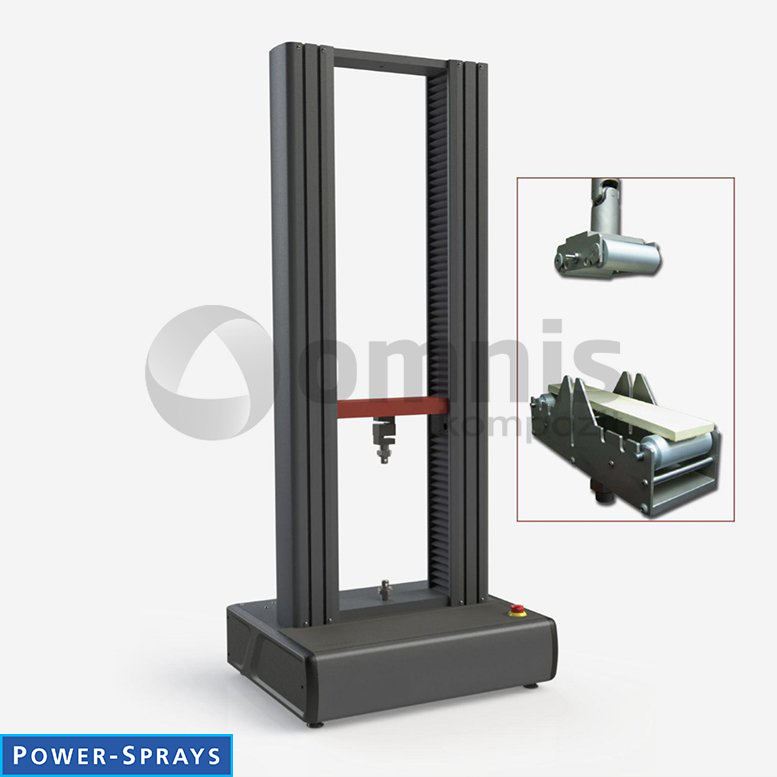Metering and Dosing
Measuring instruments are tools and devices used to quantify the physical properties of materials, including volume, mass, temperature, and pressure, among others. In the realm of composite manufacturing, these instruments play a crucial role in ensuring the precise dosing and mixing of components to achieve the desired material properties. The use of measuring instruments, alongside mixing cups and dosing systems, enables manufacturers to adhere to strict formulations, guaranteeing consistency and quality in the production of composite materials. Whether measuring the resin, hardener, or other additives, these instruments provide the accuracy and reliability needed for high-quality composite fabrication.

Gelcoat Thickness Measuring Comb
View Product
Measuring and Mixing Cups
View Product
Mek-P Measuring Cups
View Product
Fiber Ratio Test Basket
View Product
GRC Flexure Test
View Product
Thickness Measuring Pen
View Product
Pour Test Kit
View ProductWhy are accurate measuring instruments important in manufacturing?
Accurate instruments are pivotal in manufacturing because they directly impact the quality, consistency, and performance of the final products. In composite manufacturing, the exact proportions of resin, hardener, and other additives are crucial for achieving the desired mechanical properties and ensuring the structural integrity of the composite material. Precision in measuring ensures that each batch of material meets stringent specifications, reducing waste and improving efficiency. Accurate dosing and mixing, facilitated by reliable measuring instruments and mixing cups, are essential for maintaining product quality and adherence to industry standards, ultimately determining the success of manufacturing operations.
What types of measuring instruments are commonly used in composite manufacturing?
In composite manufacturing, a variety of measuring instruments are utilized to ensure precise dosing and mixing of materials. Common tools include digital scales for weighing solid and liquid components, volumetric flasks, and mixing cups for measuring liquid volumes, and viscometers for determining the viscosity of resins and other fluids. Additionally, thermometers and pressure gauges are used to monitor processing conditions. These instruments, integral to maintaining the accuracy of the composite mixture, are selected based on the specific requirements of the manufacturing process and the materials involved, ensuring optimal results in the production of composite materials.
How do they ensure the quality of composite materials?
They ensure the quality of composite materials by providing precise control over the ratios and quantities of various components in the mixture. Accurate measurement is critical for achieving the correct chemical reaction and curing behavior of the composite matrix. By using calibrated instruments for dosing and mixing cups for preparation, manufacturers can replicate consistent material properties across production batches, minimizing variability and defects. This precise control extends to the optimization of physical properties such as strength, durability, and weight, directly influencing the performance and reliability of the final composite products.
Can they be used for both liquid and solid materials?
Yes, they can be designed to handle both liquid and solid materials, offering versatility across a wide range of manufacturing processes. For solid materials, digital scales and balances provide accurate weight measurements, while for liquids, volumetric tools such as graduated cylinders, pipettes, and mixing cups offer precise volume measurements. Some advanced dosing systems can automate the measurement of both solids and liquids, streamlining the manufacturing process and enhancing efficiency and accuracy in the production of composite materials.
How do you calibrate measuring instruments for accurate readings?
Calibrating measuring instruments for accurate readings involves setting or correcting the instrument to align with a known standard or reference point. The process typically includes the following steps: selecting appropriate calibration standards, performing the calibration according to the manufacturer’s instructions or industry guidelines, and documenting the calibration results. Regular calibration ensures that measuring instruments maintain their accuracy over time, which is critical for consistent quality in manufacturing. Instruments may require recalibration periodically or after significant events, such as a physical impact or exposure to extreme conditions, to ensure ongoing accuracy.
Are there digital measuring instruments available for composite material processes?
Yes, digital measuring instruments are widely available and used in composite material processes for enhanced accuracy, ease of use, and data integration capabilities. These instruments, ranging from digital scales and micrometers to advanced viscometers and flow meters, offer precise measurements and can often be connected to manufacturing control systems for automated data collection and analysis. The use of digital instruments facilitates more efficient and reliable manufacturing processes, allowing for real-time adjustments and quality control in the production of composite materials.
How often should measuring instruments be calibrated or serviced?
The frequency at which measuring instruments should be calibrated or serviced depends on several factors, including the manufacturer’s recommendations, the instrument’s frequency of use, and the specific requirements of the manufacturing process. As a general guideline, instruments should undergo routine calibration at least annually, although more frequent calibration may be necessary for high-precision applications or in environments where instruments are subjected to heavy use or harsh conditions. Regular servicing and calibration are crucial for maintaining the accuracy and reliability of measuring instruments, ensuring the quality and consistency of composite materials.
Can they be used for automated dosing and mixing processes?
Yes, they can be effectively utilized for automated dosing and mixing processes, playing a pivotal role in enhancing precision, efficiency, and consistency in the production of composite materials. Automated dosing systems, equipped with advanced measuring instruments, are designed to deliver precise quantities of each component, ensuring the accurate formulation of composite mixtures. These systems often include digital scales for weighing solid and liquid materials, flow meters for controlling liquid inputs, and mixing cups specifically designed for composite materials, ensuring thorough blending of components.
The integration of measuring instruments into automated systems allows for real-time adjustments and control over the mixing process, significantly reducing the margin for error associated with manual dosing and mixing. This precision is crucial in composite manufacturing, where the properties of the final product are highly dependent on the exact ratios and homogeneity of the mix. Automated dosing and mixing processes, supported by reliable measuring instruments, facilitate the production of high-quality composites with consistent mechanical properties, optimizing manufacturing workflows and reducing waste.
Furthermore, the use of automated systems with integrated measuring instruments can lead to significant improvements in production capacity and operational safety. By minimizing human intervention, manufacturers can achieve higher throughput and reduce the risk of exposure to potentially hazardous materials. Overall, the adoption of automated dosing and mixing processes, underpinned by accurate measuring instruments and mixing cups, represents a strategic investment for composite manufacturers aiming to enhance product quality, operational efficiency, and competitiveness in the market.


